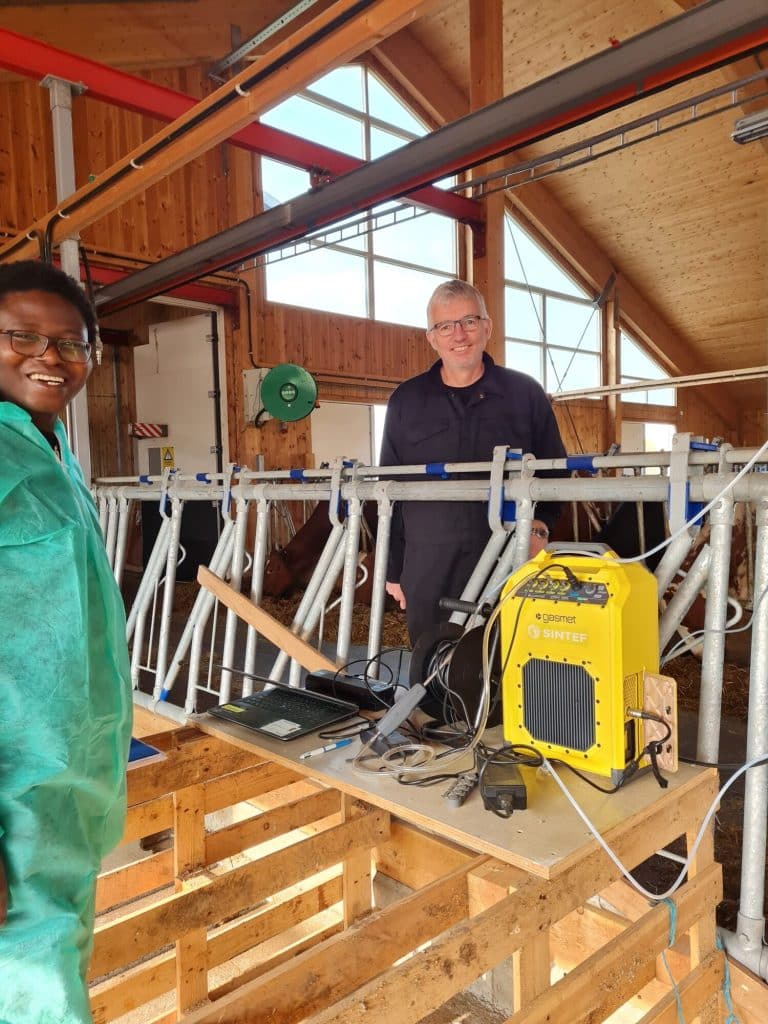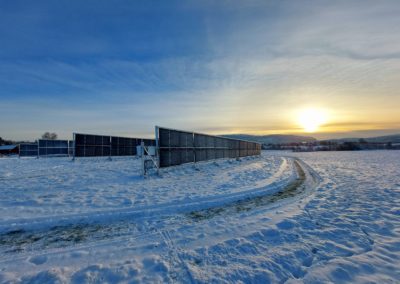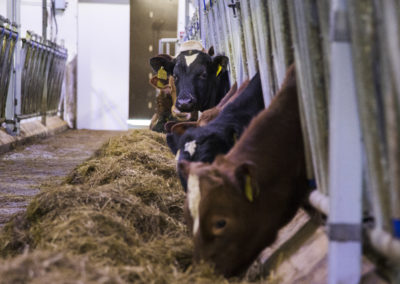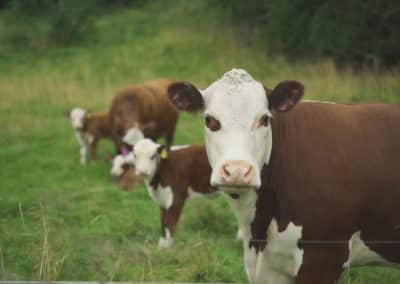We have hosted Zero Emission Cowshed (ZEC), a research project owned by SINTEF, Nord University and Fjøsmiljø AS. The aim of the project is to reduce greenhouse gas emissions from barns by converting methane (CH4) to carbon dioxide (CO2) through catalytic combustion of methane produced by cattle. Utilizing the combustion heat for energy purposes on the farm is part of the scope of the project.

ZEC has an interdisciplinary approach and includes the following activities:
- Measurement and modeling of methane concentrations in barns with different ventilation systems (Nord University)
- Investigate the possibilities for increased concentration of methane inside the barns. The goal is to achieve a concentration that can sustain catalytic combustion.
- Develop the catalytic combustion unit (SINTEF)
- Demonstrate the technology and the prototype system in the laboratory and on site in Norwegian barns (SINTEF and Nord University in collaboration with partners
Here you can hear Raphael K. Tabase talk about the attempts at Mære
Cattle and methane gas
Methane is known to most people as the main component of natural gas, but methane is also formed in the digestive system of ruminants such as cows, bulls and calves. Cattle have four stomachs. This is how cattle develop methane gas in the digestive system:
- Much of the feed is broken down by microorganisms in the first stomach - the large rumen.
- The breakdown – a fermentation process – takes place in an oxygen-free environment (anaerobic).
- During the process, an excess of hydrogen (H2) that must be removed. This happens by H2 converted to methane (CH4) of special microbes.
- The methane gas from the rumen is excreted by belching.
- Some fermentation of feed also takes place in the hindgut and is excreted as fart.



